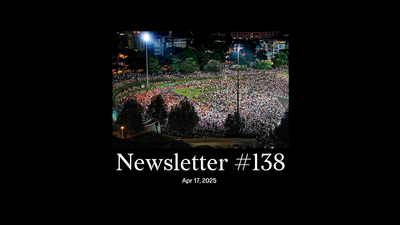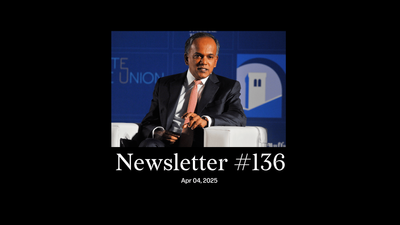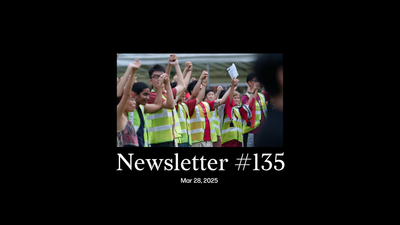Dear reader,
Over 100 people have bought tickets for our next “Jom cakap”, at 7pm on October 16th, at The Projector. It features three of Asia’s top journalists: Shibani Mahtani of The Washington Post, Karishma Vaswani of Bloomberg Opinion, and Sue-Lin Wong of The Economist.
I think this is one of the strongest line-ups for a Singapore event, period, nevermind a Jom event. We still have some tickets left, so get yours now before the event sells out (as our previous one did). Look forward to seeing you there!
Our essay of the week, “Singapore is not an island”, by several members of SG Climate Rally (SGCR), touches on many issues close to my heart: overconsumption, climate change, Singaporean insularity and navel-gazing, and the attendant lack of connection, empathy, and solidarity with our South-east Asian neighbours.
Many Singaporeans I know have always considered climate change as something that might affect us, but is somebody else’s problem to fix. Why? With a tiny population, any Singaporean contribution to global warming is a drop in the ocean, apparently. And so the same Singaporeans who preach about the issue—from conservationists to the high priests of carbon finance—continue with our usual high-carbon lifestyle, including regular business-class air travel (whose carbon footprint is many times that of economy class).
I’m hardly one to guilt-trip anybody else. I (still) own a car, among other luxuries that people in low-income and -consumption societies don’t enjoy. I think each of us is on a slow journey to figure out how we can live more sustainably, in a way that also honours the life we have, including the material and food cultures of our ancestors, and our relationships with loved ones who live a long (and polluting) air journey away.
Yet, go on the journey we must. If every person in the world lived like a Singaporean—like a “Garden City” inhabitant—humanity would need more than four planets to subsist (said the WWF almost a decade ago). The need for us to show moral leadership here is intensified, I feel, by the fact that our neighbouring countries, particularly Cambodia, Indonesia, Myanmar, the Philippines, Thailand and Vietnam, are some of the most climate-vulnerable in the world. Should we just buy our way out of trouble while ignoring them?
“Singapore is not only also vulnerable to climate change, but heavily reliant on our neighbours for resource security and our energy transition, hence their climate vulnerabilities and concerns should be ours, as well,” wrote the team at SGCR. “Rather than perpetuating lifeboat ethics and the myth of a self-sufficient island, Singapore should embrace its role and responsibility in promoting collaborative efforts to address climate challenges in the region, lest our vulnerabilities and dependencies catch up to us.”
I love how they’ve weaved in stories concerning Sabahans, the Orang Asli in Pahang, and Filipino farmers in Lupang Ramos. Singapore’s economic and technological development, from at least 1819 onwards, has been built on a model of global capitalism that has involved, as they wrote, “...the environmental degradation and exploitation of vulnerable communities in the region.”
Read the essay, and let’s think about how we, as Singaporeans and South-east Asians, can act.
Jom buat,
Sudhir Vadaketh
Editor-in-chief, Jom
p.s. In “Singapore This Week”, we discuss: the tussle between NAC and TODAY; youth vaping; Singapore Archifest, the funding of impact start-ups; and more.
If you've enjoyed our newsletters, please scroll to the bottom of this page to sign up to receive them direct in your inbox.







